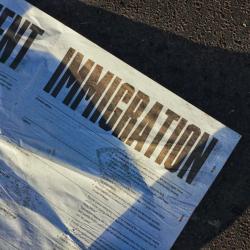The basis, which we found to write about the above topic is regarding the general ITAR-related discussions on several platforms or forums.
If it weren't these forums, we wouldn't have even an iota of assumption how much ignorant several companies can turn.
For the uninitiated, ITAR or International Traffic in Arms and Regulations is an export control law. It's a LAW, not a certification standard as assumed by many. We want you to clearly learn about the regulations coming under the U. S. State Department's Directorate of Defense Trade Controls (DDTC).
The regulations asks an exporter to become fully ITAR compliant if they are in a business where dealing of Defense Articles, Services, or Technical Data takes place. Non compliance of these regulations would amount to civil or criminal penalties, 20 years of rigorous imprisonment to be the worst. If these weren't enough, a tarnished reputation for the lifetime would definitely highlight the case.
Till now, you may have understood or slightly have developed an idea regarding the ramifications associated with the violation of U. S. export regulations.
How to comply with the ITAR regulations?
Most importantly, a company needs ITAR compliance in every whatsoever condition. Irrespective of what has been said on the Internet or suggestions offered by so-called experts, you need a professional advice.
First of all, a legal explanation allows to comprehend the policies you and your company's employees need to understand. Since the responsibility is not only owned by the senior management only, it has to be educated, trained, and guided to the employees.
Second, the integrity of compliance would lose its impetus if all employees aren't aware about the regulations. For proper maintenance of compliance measures, especially in tandem with the U. S. export control regulations, an accountability have to be set up.
Third, critical monitoring of trade partners, carriers, and countries are vital to the compliance measures. Moreover, one should get notified about the potential risks/penalties for violating the established regulations.
Who can provide/supply guidance or services (if any)?
For your information, if you are an exporter, you also need to know about the ECCN classification of products that require permission to get exported. However, considering your decent awareness of the subject, we recommend you to pursue a Trade Compliance Consultant. Their full range of services would accommodate the requirements of your organization and employees.
Basically, a consultant provides a framework, tools, services and various resources to your organization. As a result, you can avoid legal troubles in penalties and punishment awarded by the judiciary.
How to find the reliable consultants?
The Internet is a place of colossal information about various products and services offered by providers. You can check into the search engines and find consultants in all departments, whether it is ECCN or HTS classification, export control regulations, export compliance software, or any related topic.
Browse the websites to learn about the vendors, suppliers, sellers, or companies. Talk to them via online messengers, Skype, Facebook, or any other message-exchanging platform.



